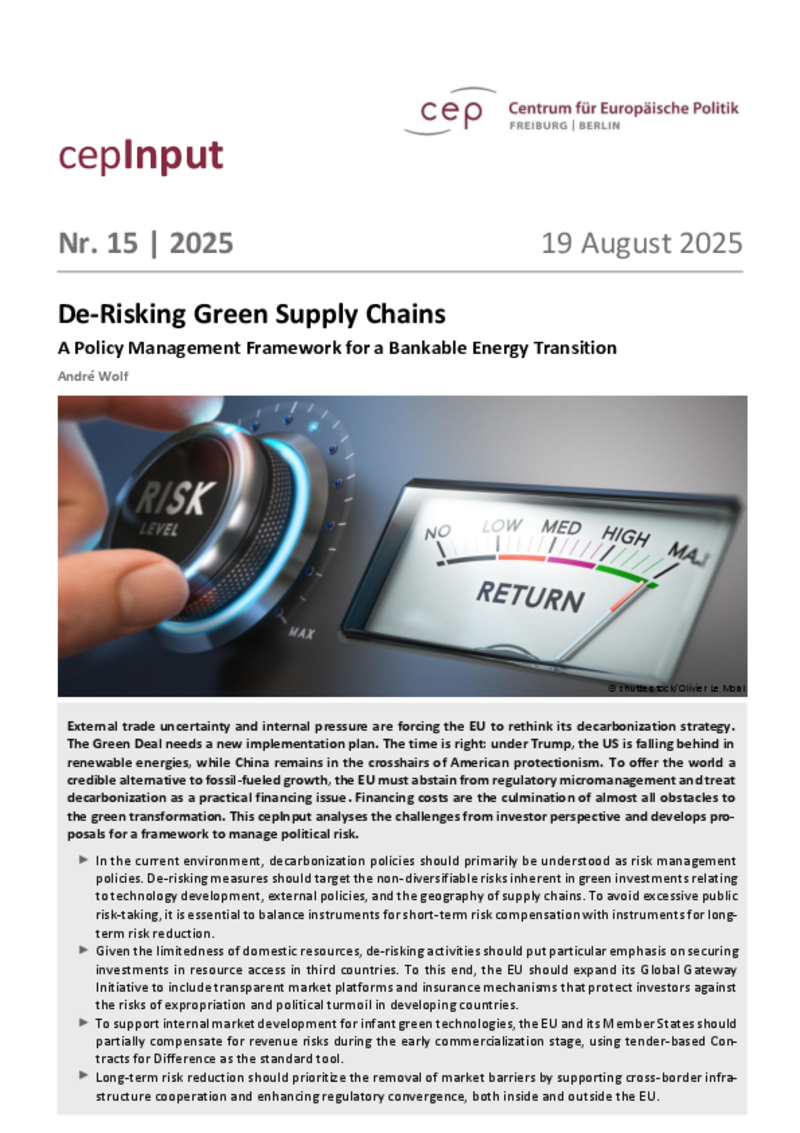
Economic & Fiscal Policy
De-Risking Green Supply Chains
cepInput
"In times of growing internal and external pressure, the European Green Deal needs a new implementation strategy. The EU must understand transformation policy as social risk management. The key to the success of decarbonisation is to mitigate systemic investment risks," explains cep energy expert André Wolf.
The cep sees the key in a combination of short-term and long-term measures. Public risk adoption should be market-based and limited in time, for example through contracts-for-difference to hedge price and cost risks. At the same time, the EU must remove structural market barriers by expanding cross-border infrastructure and strengthening regulatory integration in the internal market.
Particular focus should be placed on investments in resource-rich third countries. New public-private financing instruments are needed to strengthen investment readiness and protect companies against local risks such as expropriation or political instability. In addition, the EU should develop a strategy for regulatory cooperation with developing countries in order to create stable supply chains for the energy transition.
Without targeted risk management, there is a risk of rising costs for companies and consumers, delays in climate targets and a loss of competitiveness with direct consequences for German industry and its export markets.
Download PDF
| De-Risking Green Supply Chains (publ. 08.19.2025) | 783 KB | Download | |
 | |||



